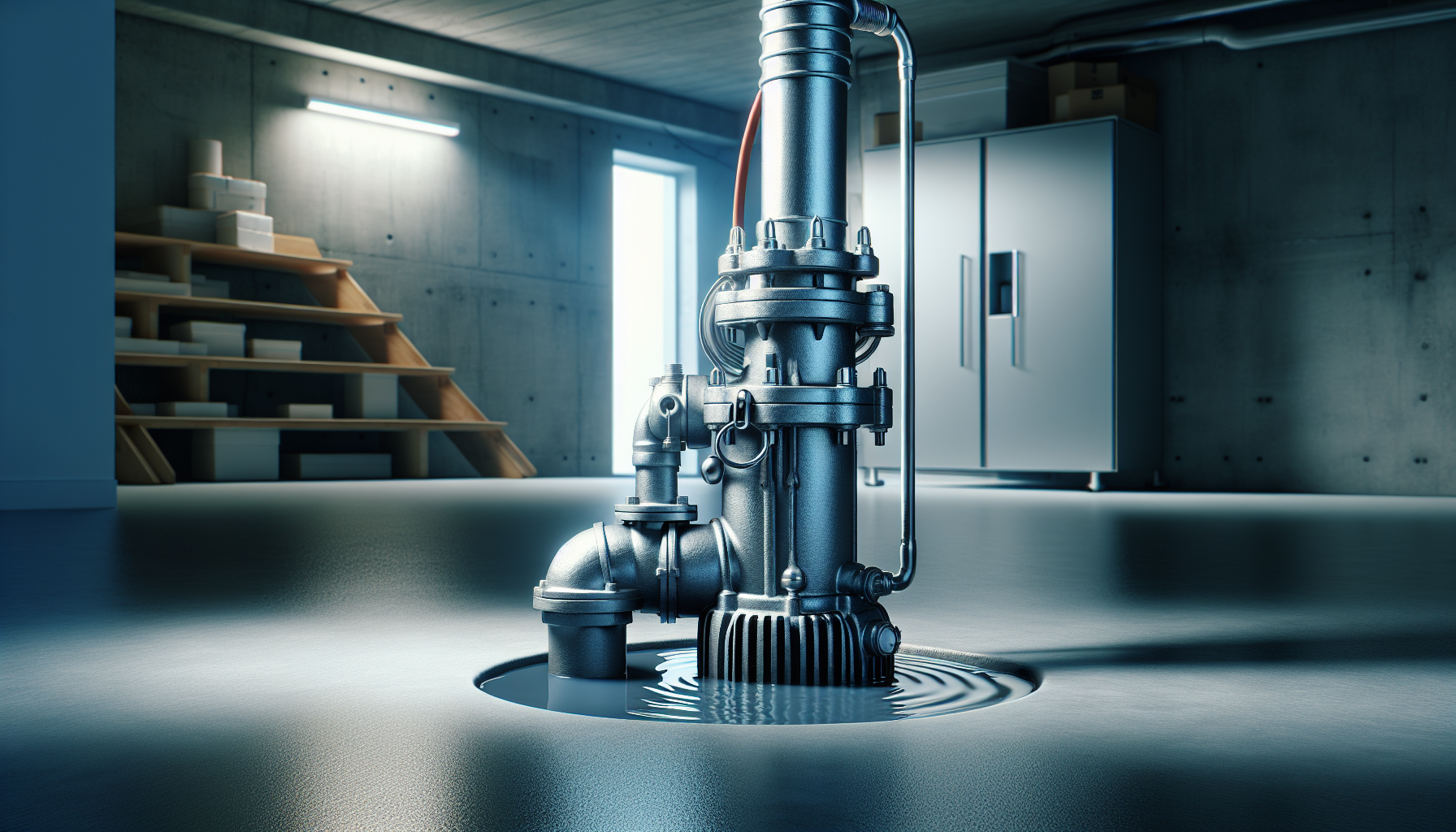If you’re planning on renovating or converting your basement, it’s important to consider the plumbing aspects of the project. Whether you’re looking to add a bathroom, laundry room, or a wet bar, proper plumbing is essential for a successful basement transformation. In this article, you’ll find a collection of helpful tips that will guide you through the process of plumbing in basement renovations and conversions, ensuring that your project is completed smoothly and efficiently. From mapping out your plumbing system to choosing the right fixtures, these tips will help you avoid common pitfalls and achieve the basement of your dreams.

Evaluate Existing Plumbing
Before starting any basement renovation or conversion project, it is crucial to evaluate the existing plumbing in your basement. Take the time to inspect the pipes and fixtures to identify any leaks, corrosion, or damage. This step will help you determine if any repairs or replacements are necessary before moving forward with your renovation plans. It’s also a good idea to assess the water pressure and flow in the basement to ensure it meets your needs.
Consider Your Needs
When planning a basement renovation or conversion, it is important to consider your specific plumbing needs. Think about how you intend to use the space and what plumbing fixtures and appliances you will require. Will you have a bathroom, laundry room, or a kitchen in the basement? Will you need additional water supply and drainage connections? Understanding your needs will help you create a comprehensive plumbing plan and ensure that the renovated space meets your expectations.
Plan the Layout
Once you have evaluated the existing plumbing and determined your specific needs, it’s time to plan the layout for your basement plumbing. Consider the location of your fixtures and appliances, such as sinks, toilets, and washing machines. Decide on the best routing for your pipes to ensure efficient water supply and drainage. It is essential to consult local building codes and regulations to ensure compliance with plumbing standards and requirements.
Install Sump Pump
One important aspect of basement plumbing is installing a sump pump. A sump pump is a device that helps prevent flooding and water damage in your basement. It collects excess water and pumps it out of the basement, keeping the space dry and safe. It is especially important if your basement is prone to water intrusion or if you live in an area with a high water table. Proper installation and regular maintenance of a sump pump are essential for its effective operation.

Choose the Right Pipes
Choosing the right pipes for your basement plumbing is crucial for the longevity and efficiency of your system. Different types of pipes are available on the market, including copper, PVC, and PEX. Each has its advantages and disadvantages, so it’s essential to consider factors such as cost, durability, flexibility, and ease of installation. Consulting with a professional plumber can help you make an informed decision and ensure the pipes you choose are suitable for your specific needs.
Insulate the Pipes
Insulating the pipes in your basement is a vital step to prevent freezing and reduce heat loss. In cold climates, uninsulated pipes are at risk of freezing during winter months, leading to potential bursts and water damage. By insulating your pipes, you not only protect them from freezing but also conserve energy by reducing heat loss. Various insulation materials, such as foam sleeves or fiberglass, can be used to insulate the pipes in your basement.
Ensure Proper Ventilation
Proper ventilation is essential for any basement renovation or conversion involving plumbing. Adequate ventilation helps remove excess moisture and prevents mold and mildew growth, which can be detrimental to your health and the integrity of your basement. Ensure that your renovation plans include proper ventilation systems, such as exhaust fans and vents, to keep the air fresh and dry. Consult with a professional to determine the best ventilation solution for your specific basement.
Waterproofing Measures
Basements are inherently susceptible to water intrusion, so it is crucial to implement waterproofing measures during your renovation or conversion project. This can include installing a waterproofing membrane on the walls and floors, sealing cracks and gaps, and ensuring proper drainage systems. By addressing waterproofing concerns, you can protect your basement from potential water damage and create a dry and comfortable living space.
Create Access Points
When planning the plumbing layout for your basement renovation or conversion, it is essential to create access points for maintenance and repairs. Consider installing access panels or removable sections of ceilings and walls to provide easy access to pipes and fixtures. This will make future repairs or inspections much simpler and cost-effective. Don’t forget to incorporate shut-off valves for individual fixtures to allow for isolation during emergencies or repairs.
Consider Hiring a Professional
While DIY projects can be fulfilling, plumbing in basement renovations and conversions can be complex and challenging. Especially if you have little experience or knowledge about plumbing systems, it is highly recommended to hire a professional plumber for your project. A professional plumber has the expertise, tools, and knowledge to ensure your basement plumbing is installed correctly and meets all codes and regulations. They can also offer valuable advice and recommendations based on their experience.
In conclusion, proper planning and execution are essential when it comes to plumbing in basement renovations and conversions. Evaluating existing plumbing, considering your needs, and planning the layout are crucial first steps. Installing a sump pump, choosing the right pipes, and insulating them will ensure a durable and efficient plumbing system. Proper ventilation, waterproofing measures, and creating access points contribute to a safe and comfortable basement space. Finally, consider hiring a professional plumber to ensure a successful and stress-free basement renovation or conversion project. With these tips in mind, you can confidently tackle your basement plumbing and enjoy your transformed space.

